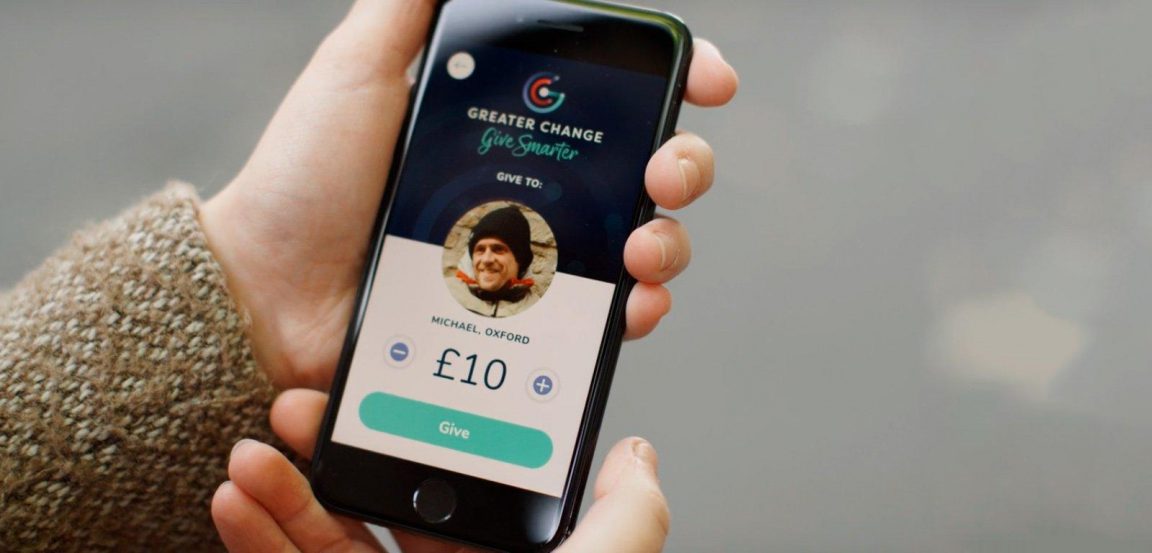Beggars with barcodes — a sign of changing times?
If a homeless person had a barcode that you could scan to give them money, would you? Does this sound like a good idea, or does it stop altruistic aspirations in their tracks by triggering fears of depersonalisation in the digital age?
In the feel-good brand industry, we believe in a brighter future and we believe that purpose-driven brands can build a better world. We are continually looking for ways that technology and products can help us bring about this change. So when we hear about an inspiring use of technology in the not-for-profit sector, we want to know about it and let it inspire us further.
Fear of change
But also, as we push back the boundaries of what is possible, we need to consider the fears that can be evoked in the human psyche in this time of great change. We need to consider these so that we can dispel the myths and preconceptions people have about technological advance. This can free us up to respond in more appropriate and useful ways to reality. Greater Change is just one example of this that we can learn from. On closer inspection, we see that this mobile app, that could seem to be a ‘big brother’-like invasion of privacy to some, is actually a well-considered response to the fast-changing times we live in.
The problem
The times, they definitely are a-changing. As a nation, we are less and less likely to carry spare change in our pockets, and later this year debit cards are set to overtake cash as the most frequently used payment method in the UK.
Lack of spare cash in pockets is likely to hit the homeless hard, as many people living on the fringes of society rely on this as an income stream. Participation in society has become more and more dependent on being able to digitally engage, and those on the fringe of society can end up feeling left out and left behind.
At the same time we’re seeing the national problem of homelessness and rough sleeping on the increase. The number of rough sleepers has grown, while the government seems to stand by apathetically, unable to solve this complex problem. In our darker moments, we worry about where we are all heading as individuals and as a society. But, wait; even in an apparently bleak situation like this, there are people finding positive ways to use technology to support constructive social change.
The response
Alex McCallion, a recent Oxford Graduate (Jesus College, Economics and Management), is the co-founder of Greater Change, a new and smarter way to give to the homeless. This not-for-profit pilot scheme is currently running in Oxford, and has been given an initial boost through crowd funding. Greater Change has taken a hard look at the problems of giving cash to the homeless. It’s not just that we have less change in our pockets, people are also less likely to give because they are worried that the money will be used to feed addictions and not to provide long term solutions.
Alex McCallion and Aspire, Oxford (an employment, recovery and rehabilitation charity) have joined forces and this is what they have come up with: a secure mobile donation app supported by charity infrastructure and case workers. Homeless people can apply to join the scheme and are supported to set up specific saving goals. Each homeless person is then given a QR code on a lanyard to use. Homeless people can often feel depersonalised by their situation, but far from depersonalising them further, the QR code is being used to give homeless people more of a voice; providing information to potential donors about the person they may give to, such as a biography and information about what they are saving up for. The scheme is free to those using it and homeless people do not need their own bank accounts or smartphones as the scheme is managed by the charity. People can also use the app to give more generally to charity for the homeless.
Similar contactless trials have taken place elsewhere in the UK and Europe over the last year, through organisations such as The Rough Sleeping Partnership in Bristol and TAP in Hackney. Greater Change is still a work in progress; feedback and suggestions for improvement are welcome. But even in the short time they have been operating, they report that they have seen people go into stable housing and also employment. They have had very positive feedback from homeless people using the project who have welcomed this as something that can really help them climb out of the poverty trap.
Innovation for change
We can respond to change in innovative, creative ways and build a better world for us all; not just those in the market place, but also those who have fallen on hard times and are living hand-to-mouth on the fringe. As a society we can work together to find ways to help and support all members of that society. Greater Change is showing us just one of the ways that we can use technology to work towards a better and more inclusive society.



